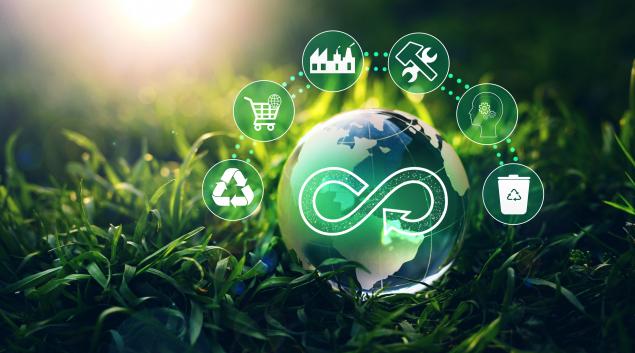
|
| , - |
|
| Dauphine, Salle Raymon Aron |
French event
Following on from the work of the ‘Club of Rome’ in the early 1970s, the principle of economic players (manufacturers, distributors, importers, marketers) taking responsibility for all or part of waste management was introduced into French law in 1975. However, it was not until the early 1990s that a system for processing household packaging was established. From the 2000s onwards, other specialised channels were set up, depending on the characteristics of the waste to be treated.
At the same time, over the last 20 years, the principle of extended producer responsibility (EPR) has been broadened. The aim is no longer simply to treat waste (disposal, recovery, recycling), but also to limit or even prevent the emission of waste by encouraging re-use or by acting on the design of products themselves. Implementing EPR has meant involving a wide range of stakeholders in the collective management of the entire life cycle of products, taking into account their lifespan, repairability, different ways of using them, the collection and recycling of products at the end of their life, the recovery of their components and the elimination of anything that cannot be reintroduced into economic circuits. This extension of EPR was enshrined in the 2020 law on the fight against waste and the economic recovery of waste.
These developments, which are largely the result of joint initiatives by the Member States of the European Union, have been particularly marked in France. There are now 25 extended producer responsibility schemes in France, and three more are due to be set up by 2025. The eco-taxes (financial contributions) levied to organise these schemes amount to around €2 billion, of which just under half is paid to the local authorities, which are responsible in part for collection and sorting. Given the extension of EPR objectives, this activity is set to grow significantly.
EPR channels are largely structured by the original organisations known as eco-organisations. To meet their obligations, producers can choose or be encouraged to organise themselves collectively. As private not-for-profit organisations approved by the public authorities, eco-organisations are responsible for ensuring that EPR schemes are effective and comply with the specifications laid down by the public authorities. On behalf of producers, they select, manage and audit the most efficient and responsible operators in the reuse, recycling and treatment of waste. They are also responsible for managing eco-taxes and ensuring the traceability of the many transactions within the EPR channels.
France is well ahead of the rest of the world in implementing EPR, and is experimenting in this area. The organisation of EPR schemes is currently the subject of debate, particularly with regard to the missions and methods of action of the eco-organisations, the way in which their actions relate to those of the other stakeholders in the EPR schemes and, more generally, the institutional framework for the principle of Extended Producer Responsibility.
The conference brought together experts from a wide range of stakeholders - marketers, treatment and recycling manufacturers, players in the reuse sector, eco-organisations, the State, local and regional authorities, international organisations, etc. - to discuss ways of improving the EPR system. - to discuss ways of improving the French and European frameworks.
Programme :
9h - 10h30 : 1ère Table ronde
“La REP : Objectifs et Modalités de Mise en Œuvre”
- Peter Börkey, Responsable Économie Circulaire, OECD
- Mattia Pellegrini, Chef d’Unité, Direction Générale de l’Environnement, Commission européenne
- Marta de Cidrac, Sénatrice des Yvelines
- Sylviane Oberlé, Chargée de mission prévention des pollutions, Association des Maires de France (AMF)
Modération : Éric Brousseau, Directeur scientifique, Chaire Gouvernance et Régulation & Club des Régulateurs
10h30 - 11h : Break
11h - 12h30 : 2ème Table ronde
“Quel cadre d’action pour les acteurs de la REP ?”
- Jean Hornain, Directeur Général, Citéo
- Guillaume Balas, Directeur Général, Envie
- René-Louis Perrier, Président, Ecologic
- Lohengrine Schulz, Directrice de programme "Economie circulaire", Secrétariat général à la planification écologique (SGPE)
Modération : Éric Brousseau, Directeur scientifique, Chaire Gouvernance et Régulation & Club des Régulateurs

























